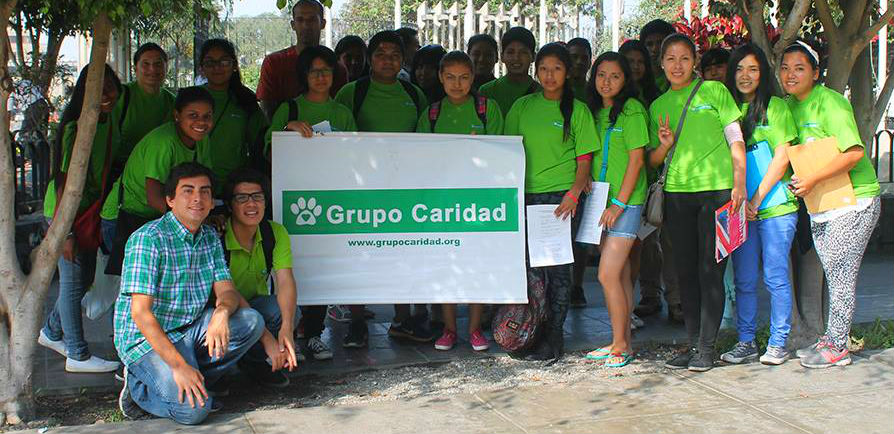
EspañolCruelty against animals has risen to the forefront of public debate in Peru, as a petition to punish those who mistreat animals with jail time gathers steam nationwide.
Former Congressman Isaac Mekler has joined forces with the nonprofit Grupo Caridad (Charity Group) to spearhead the initiative, which calls for criminalization and up to six years jail time for cruel treatment, abandonment, and neglect.
Grupo Caridad — a Peruvian NGO founded in 2004 with the aim of ending animal abuse and raising ecological awareness — has taken to social media campaign to collect 80,000 signatures, the amount required by the National Office of Electoral Processes (ONPE) to submit a bill for legislative discussion.
Peru’s current Law on Protection of Pets and Wild Animals dictates that the protection of all species of domestic animals, as well as wild animals kept in captivity, is a matter of “national interest.” However, infringements are usually punished by negligible fines.
https://www.youtube.com/watch?v=SIjr6WBAquE
In an interview with local broadcaster RPP Noticias, Mekler explained that the bill also proposes to punish veterinary schools that conduct experiments on live animals.
“I am absolutely convinced that whoever beats a dog, will hit a child … That is the level of alienation, madness, and savagery of people who do such things to animals,” Mekler argued.
Moreover, the proposed legislation specifies dogfighting and cockfighting as crimes. Bullfighting is the notable exception, considered part of Peru’s “cultural and artistic” expression under existing law, but the former congressman for Callao province indicated that he would seek to ban the practice in the future.
Mekler, who served as a member of the Peruvian Nationalist Party (PNP) between 2006 and 2011, indicated that the proposed bill includes penalties between three to five years in jail for those found guilty of mistreating or beating an animal, rising to four to six years if the animal dies as a result.
Pedimos el apoyo de la prensa: http://t.co/EKKxCPEE1N ¡Ley contra el maltrato animal YA! @latiachuchi @valiabarak pic.twitter.com/6PdAONZgyy
— Vegan Channel (@veganchannel) March 20, 2015
“We ask for the support of the press. Act against animal abuse now!”
The collection of signatures was originally scheduled to end on March 27. However, on Monday, March 23, Mekler announced via Facebook that the deadline has been extended to April 7.
“We are impressed and excited by the response of so many people in recent days … despite knowing that the campaign had a short deadline, [they] have picked up forms to collect signatures for our law,” he wrote.
“Even today, at this time, there are people asking for forms,” he stated, adding that “each signature is a sign of love for animals.”
A Crime or Peruvian Tradition?
Nelly Françoise Arnao, a volunteer with the petition campaign, told the PanAm Post that the need to protect animals is more pressing than ever.
“In recent months, there’s been a disproportionate increase of people who abuse animals and record these practices in social networks,” she argues.
The campaign has gathered considerable support, she believes, with people saying “there has been enough animal abuse in Peru, and that we should now do something about it.” However, no exact count of the signatures is available yet.
Arnao defended the significant jail terms, as a necessary deterrent to “restrain so many sick people running loose.”
However, Manuel Ferreyros, a columnist and law student at the Pontifical Catholic University of Peru (PUCP), counters that one can be personally opposed to the abuse and unjustified killing of animals without resorting to heavy-handed laws.
“Just like bullfighting, cockfighting has deep cultural roots in Peru,” he says, “and that must be protected.”
Moreover, Ferreyros brands the proposed prison sentences as “disproportionate,” explaining that manslaughter only carries a maximum penalty of two years in Peru, with the possibility of extension to between four to six years in aggravating circumstances — mirroring closely the bill’s proposals concerning animal welfare.
“I think that wanting to punish the death of an animal in the same way as manslaughter and gross negligence is crazy.”
Finally, the student commentator says this initiative is likely to take a back seat to coinciding drives for same-sex marriage and the decriminalization of abortion, since it “may be seen as significantly less important.”
Update: 10 a.m. EDT, March 25, 2015.
Edited by Laurie Blair and Fergus Hodgson.
 Versión Español
Versión Español












